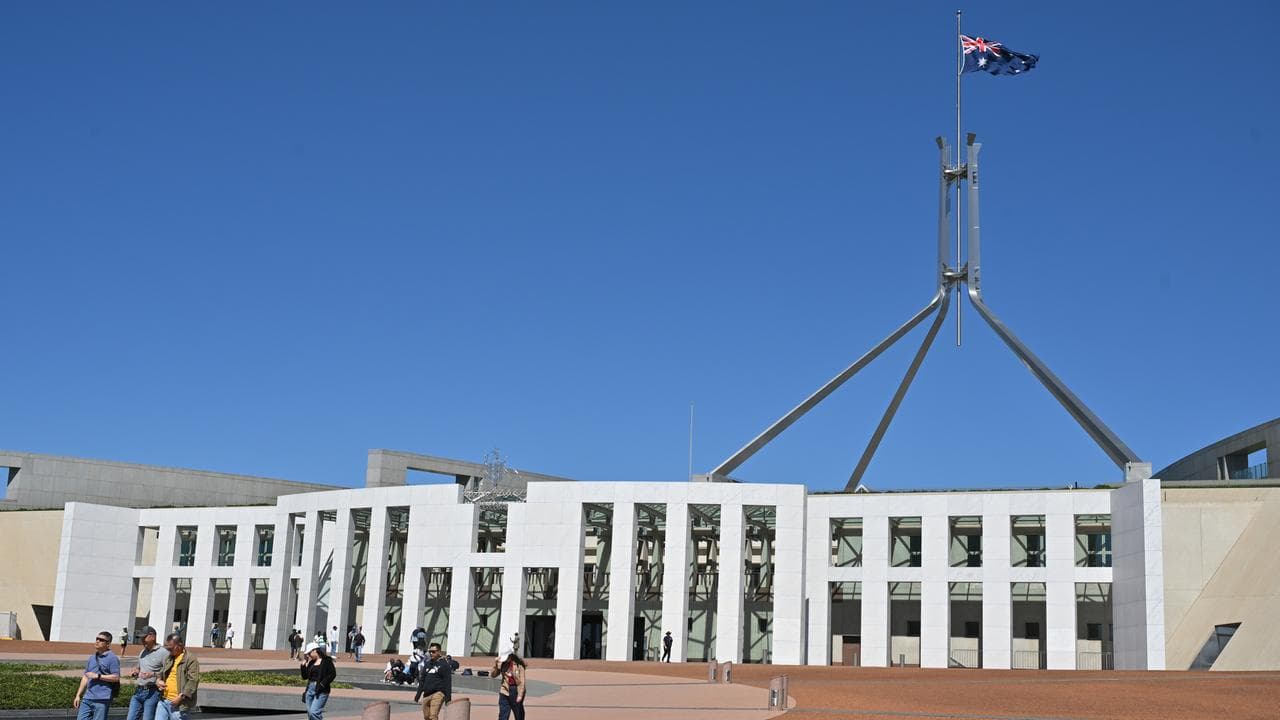
Thousands of public servants have been told their employment agreements will not change regardless of who wins the federal election, as a fresh political fight kicked off over potential job cuts.
The employment of 185,000 Australian Public Service workers has been in the spotlight since Opposition Leader Peter Dutton pledged to cut 41,000 jobs and push workers to return to the office full-time if elected.
Critics fear that ending working from home could negatively impact working mothers but Mr Dutton insisted there would be no change to Enterprise Bargaining Agreements (EBA) and extra resources would be pumped into frontline services.
He said only Canberra-based public servants would be urged to return to the office.
"You've got EBAs that are there that allow for work-from-home arrangements. We're not proposing to change those," Mr Dutton told reporters in Darwin.
"There is still flexibility in the workplace in Canberra in the public service - we've been clear about that - and I'm fully supportive of whatever arrangements people arrive at with their bosses."
He committed to ensuring "efficiency" from taxpayer dollars and accused Labor of running a scare campaign, stressing proposed work-from-home changes would not extend to the private sector.
"Why do they want to scare women when the policy doesn't affect anybody except for public servants in Canberra?" he said.
More than a third of Commonwealth public servants are based in Canberra as of June 2024, with almost 47 per cent in Sydney, Melbourne or Brisbane.
Employment and Workplace Relations Minister Murray Watt said Mr Dutton was under a "misapprehension" that all public servants lived in Canberra and claimed proposed job cuts would affect service delivery.

He said Commonwealth workers were "decentralised" particularly in his home state of Queensland, a key election battleground that has been plagued by weeks of wild weather and natural disasters.
"People who just endured a crisis will be left waiting and the safety net millions count on could fail when it's needed most," Senator Watt said.
"There are 41,000 livelihoods that are at stake as a result of these cuts but there are millions of Queenslanders whose livelihoods are at stake in terms of the kind of services that they receive from the federal public service."
Senator Watt said the size of the public service was "about right" and Labor did not intend to make changes.
The Community and Public Sector Union said Mr Dutton's comments on flexible work had caused "confusion and uncertainty" as until now, it was thought all workers would be affected by full-time office requirements.
National secretary Melissa Donnelly said flexible arrangements were why a record number of women worked for the federal public service and could be a deciding factor in someone working or not working.
"Singling out public servants in one location to strip away these rights is bizarre and chaotic," Ms Donnelly said.
"It proves that workplace rights are nothing more than a political football for Mr Dutton."




